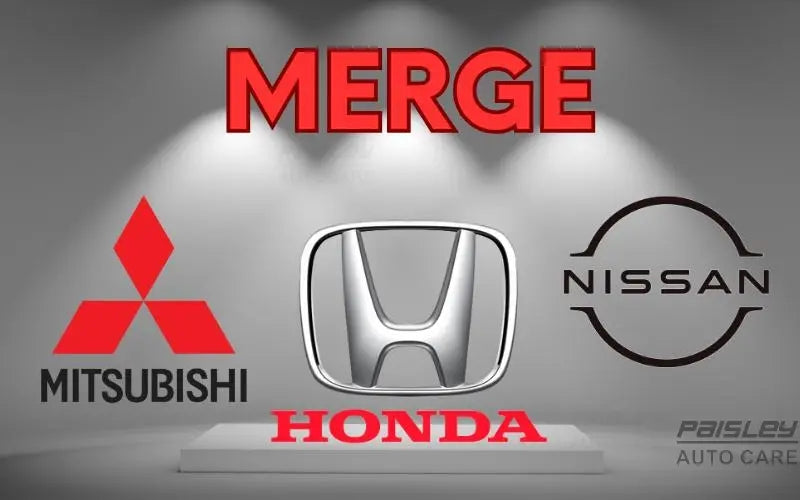Honda, Nissan, and Mitsubishi in Merger Talks: A New Chapter in Automotive History?
In a development that could reshape the automotive landscape, Honda, Nissan, and Mitsubishi have confirmed they are in discussions about a potential merger. The move would mark a historic union between three of Japan's most prominent car manufacturers, each with its unique legacy, strengths, and challenges. While no concrete details have been released yet, the implications of such a merger are monumental, both for the companies involved and the global automotive industry.
Why Are They Considering a Merger?
The automotive industry is facing unprecedented challenges. From the rapid shift to electric vehicles (EVs) and advancements in autonomous driving technology to global economic uncertainties and stringent environmental regulations, carmakers must adapt quickly or risk being left behind. By joining forces, Honda, Nissan, and Mitsubishi hope to pool their resources, reduce costs, and accelerate their efforts in innovation and production.
For years, Nissan and Mitsubishi have been partners under the Renault-Nissan-Mitsubishi Alliance, sharing platforms, technology, and supply chains. Honda, on the other hand, has largely operated independently, focusing on innovation in hybrid and EV technology. A merger could combine Honda's engineering prowess with Nissan's manufacturing scale and Mitsubishi's expertise in SUVs and off-road vehicles, creating a formidable player in the industry.
Key Potential Benefits of the Merger
-
Shared Resources and R&D
Collaboration would enable significant savings in research and development, particularly in EV and battery technologies. With global mandates pushing for reduced emissions, a combined R&D force could produce groundbreaking innovations faster. -
Stronger Global Market Presence
Honda, Nissan, and Mitsubishi collectively have a significant footprint in key markets like North America, Europe, and Asia. A merger would allow the trio to leverage each other's strengths in regions where they currently underperform. -
Cost Efficiency
Joint production facilities, shared platforms, and consolidated supply chains could reduce costs dramatically. This would allow the group to price vehicles more competitively, benefiting consumers. -
Innovation in Autonomous Driving
With autonomous vehicles becoming a reality, combining resources could place the merged entity at the forefront of this technology, competing with global leaders like Tesla and Waymo.
Challenges Ahead
Merging three companies with distinct corporate cultures, product lineups, and market strategies will not be easy. Honda has long been known for its independent approach, while Nissan and Mitsubishi have a history of collaboration through their alliance. Balancing these differences while creating a unified strategy will require careful planning and execution.
Furthermore, regulatory hurdles may arise, as governments and industry watchdogs may scrutinize the merger to ensure fair competition. Additionally, the companies must convince stakeholders—employees, shareholders, and customers—that this is the right move for all parties.
What Could This Mean for the Consumer?
If the merger is successful, consumers could see a range of benefits, from more affordable and innovative vehicles to improved after-sales services. A unified strategy could lead to an expanded lineup of EVs, hybrids, and SUVs, appealing to a broader audience. The companies could also introduce advanced connectivity and autonomous features sooner than anticipated.
However, there’s also the potential for product overlap and the phasing out of some models, which could disappoint loyal customers of specific brands.
Looking Ahead
While it’s still early days, the confirmation of merger talks between Honda, Nissan, and Mitsubishi signals a pivotal moment in the automotive world. The potential merger could create a powerhouse capable of driving innovation, competing globally, and navigating the challenges of the modern automotive era.
As the talks progress, the world will be watching closely. Will this be the bold move that secures their future in an evolving industry, or will the complexities of merging three giants prove too great? One thing is certain: the outcome of these discussions will have far-reaching implications, not just for the companies involved but for the entire automotive ecosystem.
Stay tuned for updates as this story unfolds.




